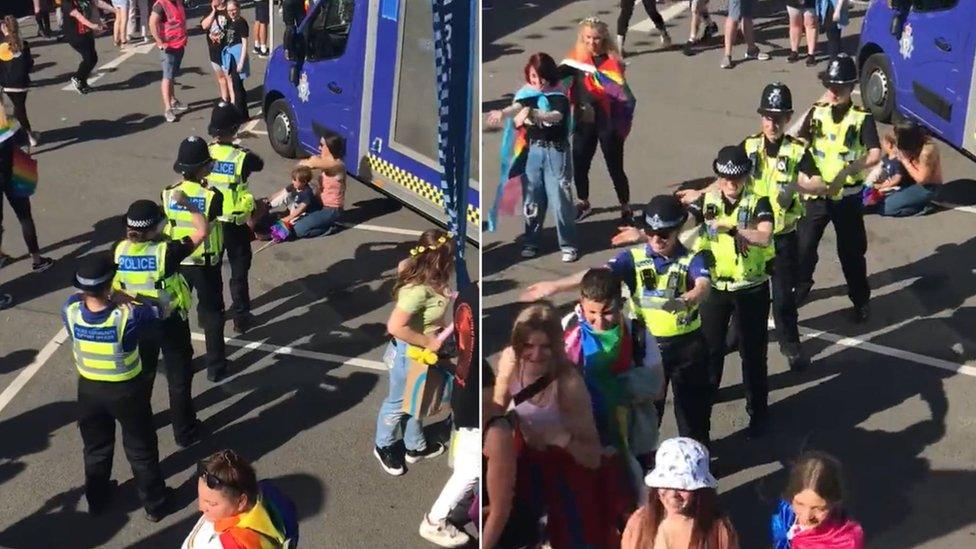The uneasy relationship between the police and Pride
- Published
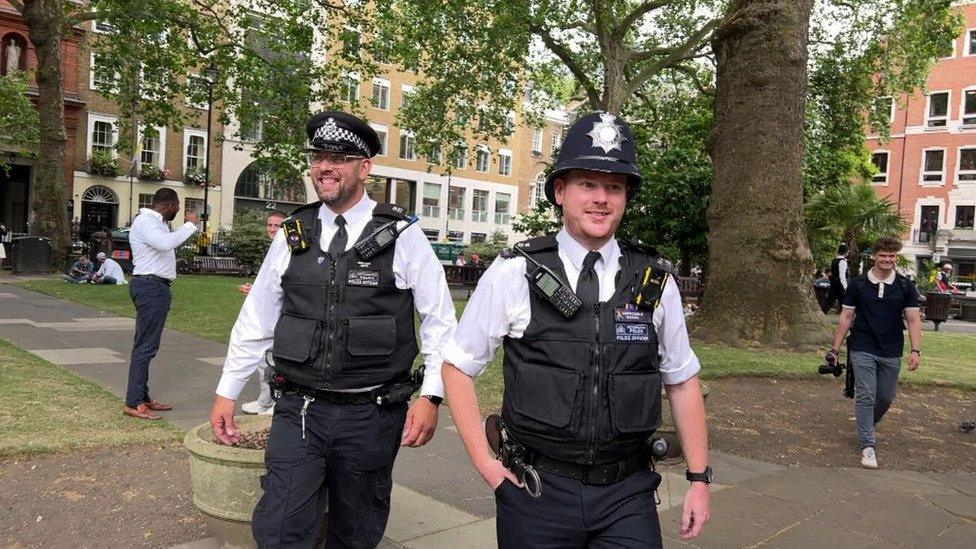
PCs Sam Mason and Matt Smith are among 12 new LGBT+ community liaison officers
Underneath the rainbow bunting in Soho, PCs Sam Mason and Matt Smith weave among the customers enjoying drinks in the sunshine, occasionally stopping to chat.
"We're kind of hoping to make a human connection again", PC Mason tells me, and "then victims might be able to be a bit more comfortable, a bit more open".
They're among 12 new LGBT+ community liaison officers - one for each policing ward in London - introduced as part of reforms to try to restore trust in the force.
PC Mason, who describes himself as "a gay man who is happily out", had previously been volunteering in that role but now it's full time, which he believes shows a commitment from the Met.
He says liaison officers have "a shared empathy, shared lived experience".
"It's not the Met of the 1980s any more, however people have lived through that - and part of them might still feel uncomfortable."
'Low in relations'
However, recent events have also damaged trust in the Met Police among London's LGBT+ community: failings in the investigation into the murders of four young gay men murdered by serial killer Stephen Port, and the Baroness Casey review, which found the force to be institutionally homophobic, including against its own officers and staff.
The review also highlighted how organisers of London's annual Pride march had asked uniformed officers not to participate last year, marking "a low in relations".
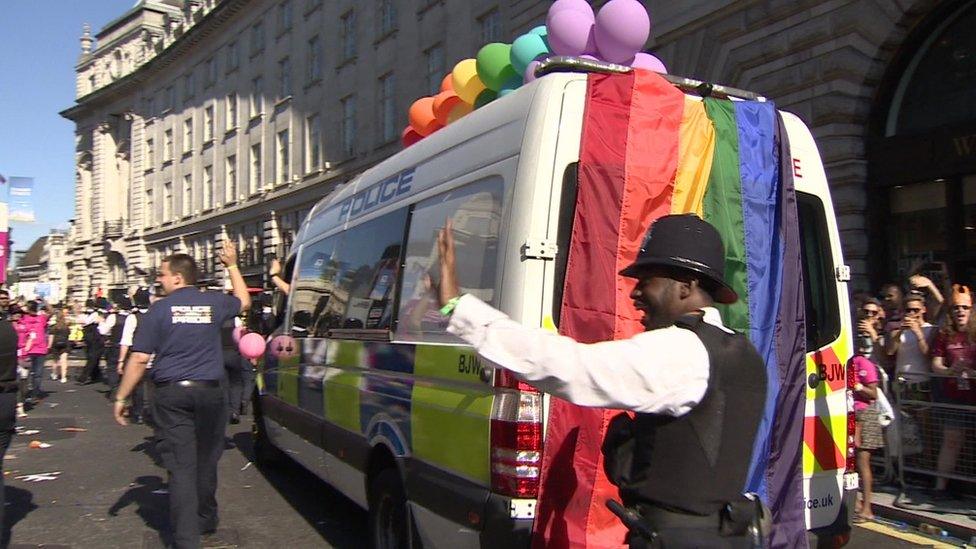
Robbie de Santos, director of External Affairs at Stonewall, says the inclusion of police in Pride is a very complicated issue
At the same time, homophobic hate crime has risen by 55% in five years, external. Transphobic offences have trebled.
Robbie de Santos, director of external affairs at Stonewall, says the inclusion of police in Pride is a very complicated issue.
"You've got to be able to lead that change from within the Met. Officers are proud to be doing what they're doing, and so they want to march at Pride.
"But for many people in our community, it's repellent to see officers marching when they've had such a negative experience."
The history of Pride is indeed rooted in protest against the way police treated the LGBT+ community.
"Right up till the 1990s, the police were targeting our community, arresting people for consenting, same-sex behaviour, even arresting same-sex couples for merely kissing at a bus stop," human rights campaigner Peter Tatchell says.
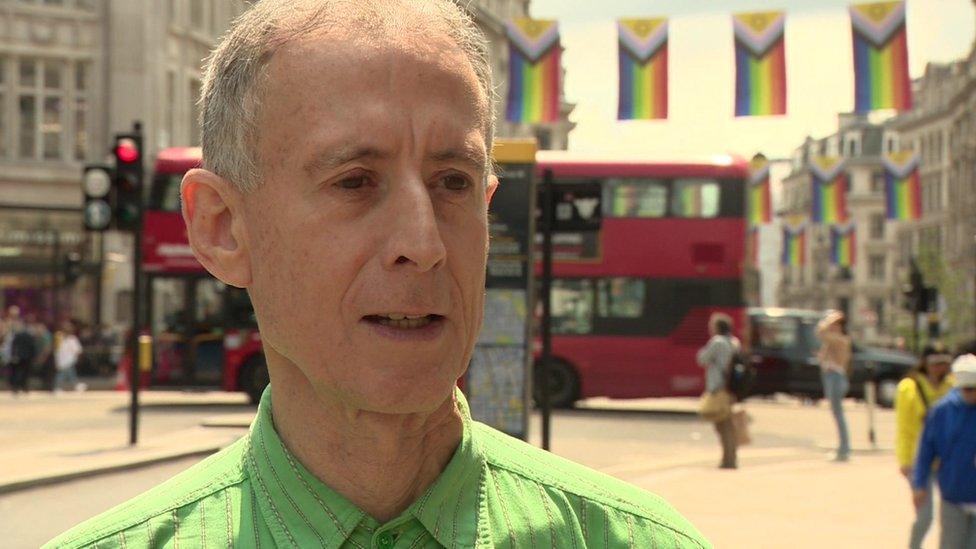
Peter Tatchell has welcomed the reintroduction of the full time community liaison roles.
He's demanded a public apology from all UK police chiefs.
Earlier this month, he received one from Met Commissioner Sir Mark Rowley, a development he calls "ground-breaking".
"I know it was only a symbol, a gesture. But for our community, those symbols are really important."
He also welcomes proposals for a new LGBT+ plan for London, and the reintroduction of the full-time community liaison roles.
"It's a good sign from the commissioner. I just hope he will also follow up with similar action for the black community and women in London."
Neither organisers for Pride in London nor the Met has confirmed whether uniformed officers will be welcome to march at Saturday's event, but Mr de Santos says this shouldn't be the focus.
"We want to see an action plan, we want to see transparency on the progress and we want to see ongoing political accountability to the mayor.
"What matters is really changing the Met, so it's a force that truly serves our community."

Follow BBC London on Facebook, external, Twitter , externaland Instagram, external. Send your story ideas to hellobbclondon@bbc.co.uk, external
Related topics
- Published1 July 2022
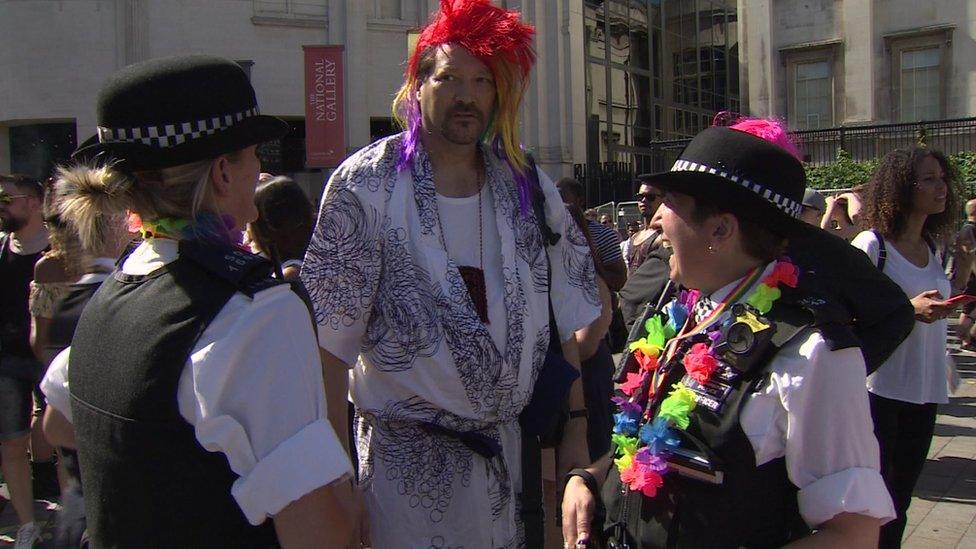
- Published29 July 2019
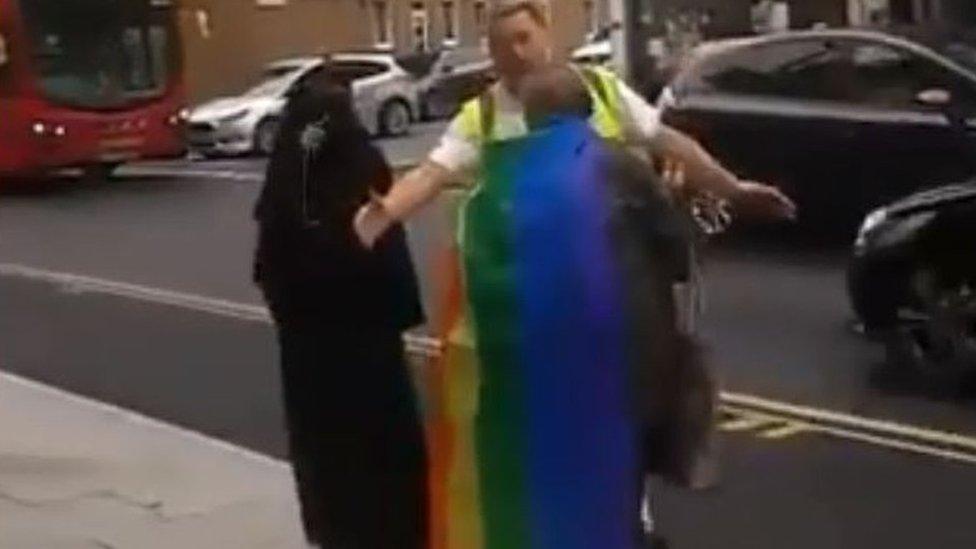
- Published22 August 2022
